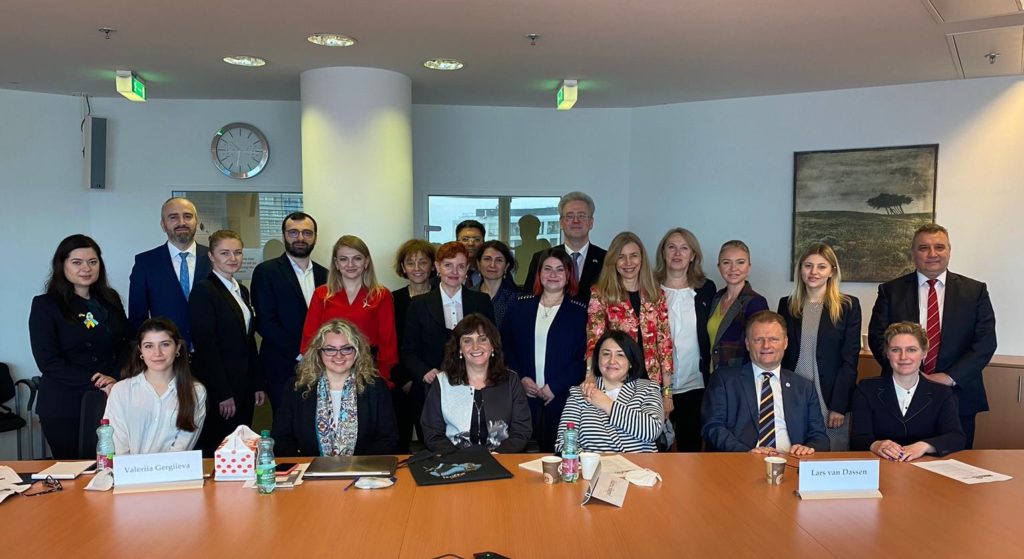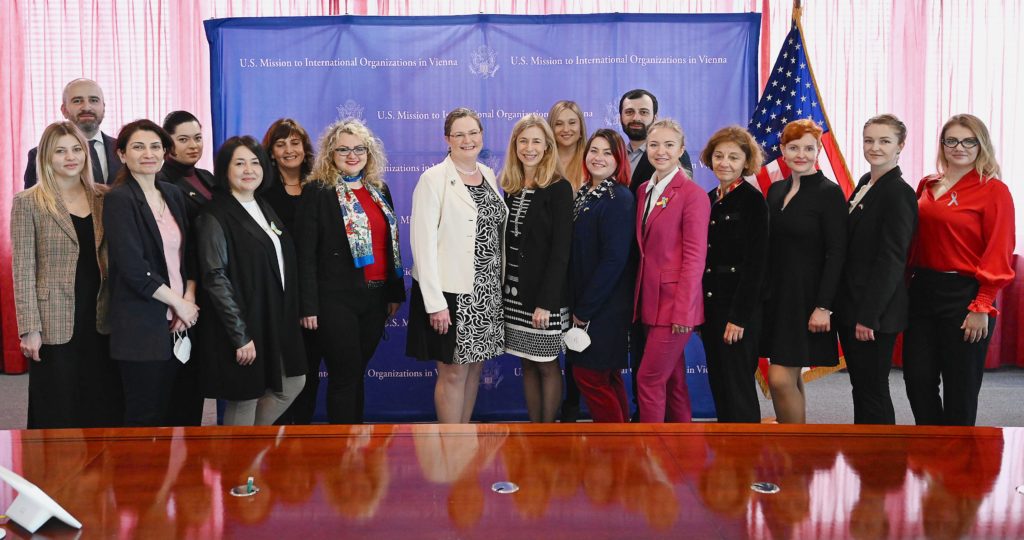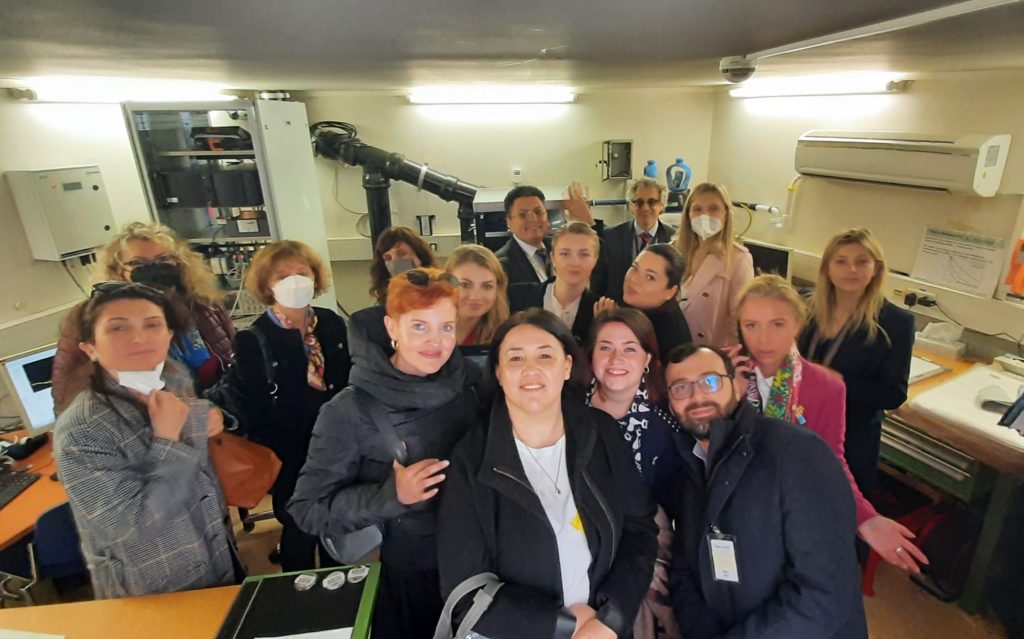May 13, 2022
Margarita Kalinina-Pohl
The James Martin Center for Nonproliferation Studies launched another initiative with the focus on the Black Sea region called the US-Black Sea Nonproliferation Exchange Initiative. The initiative is sponsored by the International Security and Nonproliferation Bureau of the US State Department and will serve as a channel for a deeper coordination and support between nonproliferation professionals in the US and Black Sea including scholars/researchers and diplomats/practitioners.
On April 26-30, over 20 emerging and prominent weapons of mass destruction (WMD) nonproliferation experts from the Black Sea region and other US and international experts convened in Vienna, both in person and virtually, to participate in an inaugural US-Black Sea Nonproliferation Exchange meeting. Participants represented governments, civil society, and academia from Bulgaria, Georgia, Moldova, Romania, Turkey, Ukraine, and the United States, and also included former CNS visiting fellows, MIIS alumni, and members of the recently established Black Sea Women in Nuclear Network. The Vienna Center for Disarmament and Nonproliferation hosted this event.
The meeting started on April 26, the 36th Anniversary of the Chornobyl nuclear catastrophe and the 62nd day of the Russia’s war in Ukraine, with a keynote address by the Ambassador and Permanent Representative of Ukraine to International Organizations in Vienna, H.E. Yevhenii Tsymbaliuk. Ambassador Tshymbaliuk called on all participants to take lessons on Chornobyl’s history seriously and not let this happen again. Furthermore, he stated that war in Ukraine and attacks on nuclear facilities by Russian troops have challenged and violated international norms for nuclear safety and security.
The Ambassador and Permanent Representative of the Republic of Georgia to International Organizations in Vienna, H.E. Ketevan Tsikhelashvili, also attended the first day of the meeting. Ambassador Tsikhelashvili reiterated her country’s support for Ukraine and noted that threats to Georgia, Ukraine, and Moldova come from the same adversary and that they need to unite their efforts to counter these threats.
The meeting agenda featured a combination of briefings by regional experts from Ukraine, Georgia, Bulgaria, and Moldova and international experts from the Vienna Center for Disarmament and Nonproliferation, World Institute for Nuclear Security, and Open Nuclear Network.
A program highlight was a group meeting with H.E. Laura Holgate, the Ambassador of the US Mission to International Organizations in Vienna. Ambassador Holgate acknowledged the importance and timeliness of the US-Black Sea Nonproliferation Exchange initiative and recognized the contribution of its members, many of whom she has met personally, to nuclear security. Ambassador Holgate emphasized the value of international efforts and cooperation in nuclear security both in terms of policy and implementation.
The group also visited the Comprehensive Test Ban Treaty Organization (CTBTO) where they had a tour of the CTBTO Operations Center, and other stations responsible for data collection and analysis.
The last day of the program was focused on the discussion of the group’s mission, goals, and future steps.
The establishment of this professional exchange will help bring together experts from the Black Sea region to address regional challenges and to share their perspective with US and international nonproliferation communities.
The US-Black Sea Nonproliferation Exchange will continue with the US program in early September 2022 and will include a visit to Washington, DC, and national laboratories.



